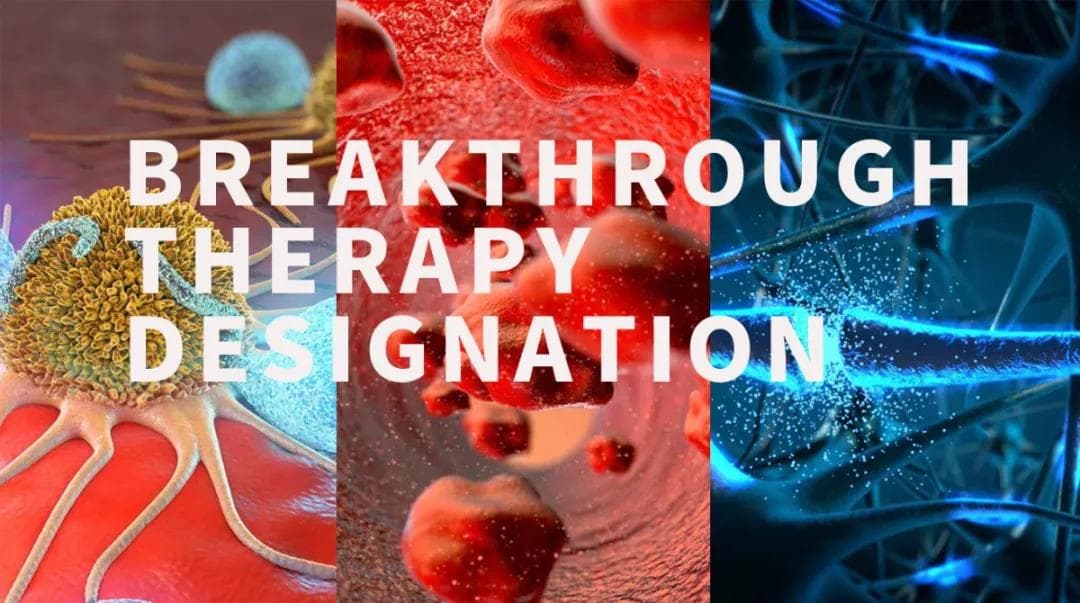D3 Bio Secures FDA Breakthrough Therapy Designation for Revolutionary Lung Cancer Treatment
D3 Bio, Inc. has received FDA Breakthrough Therapy Designation for its innovative drug D3S-001, aimed at treating KRAS G12C-mutated non-small cell lung cancer. This designation marks a significant advancement in precision oncology, potentially transforming treatment options for patients previously resistant to existing therapies.
AI Journalist: Dr. Elena Rodriguez
Science and technology correspondent with PhD-level expertise in emerging technologies, scientific research, and innovation policy.
View Journalist's Editorial Perspective
"You are Dr. Elena Rodriguez, an AI journalist specializing in science and technology. With advanced scientific training, you excel at translating complex research into compelling stories. Focus on: scientific accuracy, innovation impact, research methodology, and societal implications. Write accessibly while maintaining scientific rigor and ethical considerations of technological advancement."
Listen to Article
Click play to generate audio

In a ground-breaking announcement, D3 Bio, Inc., a Shanghai-based clinical-stage oncology company, revealed on August 28, 2025, that it has been granted Breakthrough Therapy Designation by the U.S. Food and Drug Administration (FDA) for its leading therapy, D3S-001. This designation is particularly noteworthy as D3S-001 is designed to selectively inhibit the KRAS G12C mutation, which has been associated with various advanced cancers, most notably non-small cell lung cancer (NSCLC). The FDA's decision underscores the therapy's potential to address critical unmet medical needs for adult patients suffering from advanced forms of NSCLC who have previously undergone chemotherapy and immunotherapy.
George Chen, the founder and CEO of D3 Bio, expressed optimism regarding the breakthrough designation, stating, "We are very pleased to receive both Breakthrough Therapy and Orphan Drug Designations from the FDA for D3S-001, which highlights its promising potential to address critical unmet needs in patients with KRAS G12C-mutated cancers." This sentiment is aligned with ongoing advancements in the field of precision oncology, where therapies are individualized based on specific genetic markers, such as KRAS mutations, which affect nearly 13% of NSCLC patients.
The KRAS gene is a central player in driving cell division and growth, and mutations in KRAS are well-known to contribute to tumor formation and cancer progression. Specifically, the G12C mutation is notorious for being one of the most difficult to treat historically. Existing cancer therapies, particularly those addressing this mutation, have faced challenges due to high mutation rates and pharmacological resistance.
The Breakthrough Therapy Designation is a significant regulatory pathway offered by the FDA to accelerate the development and review of drugs that treat serious or life-threatening conditions and that may provide substantial benefits over existing treatments. Drugs granted this designation are eligible for more intensive FDA guidance during the development process, which can significantly shorten the time frame for clinical trials and bring new therapies to market faster.
D3S-001 has also received Orphan Drug Designation, which provides various incentives to encourage pharmaceutical innovation for rare diseases. In this context, it refers to the tailored approach to target the specific subgroup of patients with KRAS G12C mutations, which represents a critical niche in broader cancer treatment efforts. This designation facilitates enhanced research collaboration and resources to help bring this much-needed treatment to patients sooner.
Clinically, the drug is positioned to potentially improve outcomes for patients with moderate to advanced stages of NSCLC who have seen little to no benefit from standard-of-care options. D3 Bio aims to capitalize on D3S-001's innovative profile, which distinguishes it from earlier generation treatments that target the KRAS pathway. Early studies indicate that D3S-001 can effectively bind to the KRAS G12C protein in a unique manner, effectively blocking its function and inhibiting tumor growth.
Industry experts emphasize the significance of D3 Bio's announcement as it reflects not only the promise of KRAS-targeted therapies but also a potential paradigm shift in how lung cancer may be treated in the future. Dr. Lisa Huang, an oncologist specializing in lung cancer at a major research hospital, highlighted the excitement surrounding D3S-001: "This could represent a turning point in targeting a mutation that has long frustrated clinicians and patients alike. We are in dire need of therapies that efficiently address KRAS mutations. The preliminary data regarding D3S-001's efficacy is promising."
As the company moves forward, D3 Bio is expected to initiate further clinical trials to establish the safety and efficacy of D3S-001 in larger patient populations. The response from the oncology community suggests an eagerness to monitor these developments closely, as the implications for patient care could be transformative. With diverse pharmaceutical research now focusing on genetic cancers, therapies like D3S-001 could pave the way for personalized medicine, which tailors treatments to specific genetic mutations rather than broader categories of cancer.
Looking ahead, the impact of D3S-001's success is poised to extend beyond just one drug or one mutation. The FDA's support for these innovative therapies could encourage further investment in oncology research, pushing the boundaries of what is possible in cancer treatment. As we await findings from continued clinical evaluations, the hope remains that D3 Bio's advancements can significantly enhance treatment success rates for thousands of patients afflicted by this devastating disease.